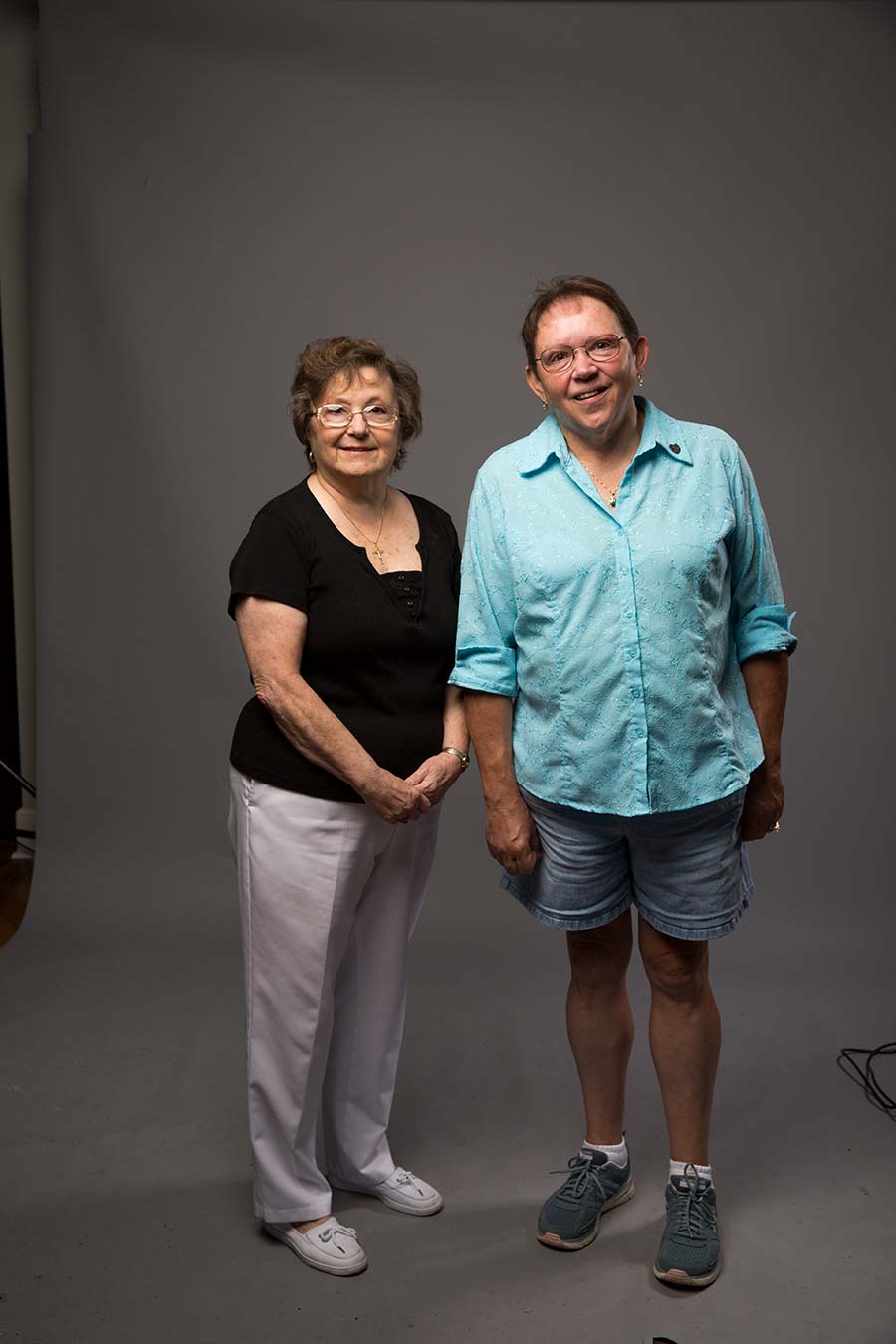A different kind of cirrhosis
Doctors know alcoholism can ruin your liver, but what if you never drink and now your doctor says you have cirrhosis?
When Judy Simms was diagnosed this year with stage-4 cirrhosis of the liver, she was shocked. It wasn’t merely because she had a terminal disease, but also that this disease was most often linked to alcoholism. Judy never drank alcohol. How did she get this disease?
Nonalcoholic fatty liver disease (NAFLD) is liver inflammation where the damage comes from a buildup of fat in the liver. Many people have fat in the liver, and most of them have no problems from this condition. For others, however, the fat causes inflammation and damages cells of the liver. This means the liver doesn’t work as it should, and like any vital organ, that means it doesn’t help the body as it should.
That inflammation causes scarring in the liver, which leads to cirrhosis. Doctors are often baffled by how this happens. According to Judy, some people are warned by doctors to stop drinking. When they inform physicians they are nondrinkers, it becomes obvious the doctor doesn’t believe them. Some experts say NAFLD could be triggered by environmental issues, while others say it runs in families.
Factors that put people at risk for NAFLD and liver damage include being 40-50 years old; hepatitis A, B, and C; obesity; insulin resistance and type 2 diabetes; high cholesterol and high triglycerides; and metabolic syndrome.
“The problem we have right now is there are no hepatologists in our area. One doctor I called wouldn’t even see me,” Judy says. “That’s one of the reasons we formed the support group for those with nonalcoholic cirrhosis of the liver, so we’d have a place to provide information, get information, and talk to others who have the same problem.”
Fran Paisley Weuest and Judy reconnected at a seminar presented by Florida Hospital Waterman that featured two hepatologists from Orlando. They recognized each other from their association with an Alzheimer’s disease support group they attended with family members. Now they’re in a group to focus on their own health.
The symptoms of NAFLD are like those of many other diseases: fatigue, weight loss for no reason, general weakness, and an ache in the upper right part of the belly. However, it can take years for these symptoms to become prominent.
A well-functioning liver is vital to life. It detoxifies chemicals and metabolizes drugs, secretes bile back into the intestines, and makes proteins needed for blood clotting and other functions.
“Our main goal now is to create awareness of the disease and to be sure doctors know there are people in this area that have it,” Fran says. “We also want to emphasize education and research. Currently, there is little or no research being done.”
According to a press release from the University of California at San Diego, a NAFLD Research Center opened in February 2016. “This is a major step,” says Dr. Rohit Loomba, professor of medicine in the division of gastroenterology and director of the center. “It creates a single entity able to address every aspect of a global disease that didn’t even exist 35 years ago.”
According to what Judy and Fran have learned, the best diagnostic tool is magnetic resonance imaging, which Dr. Loomba’s center supports. “This is a key advance because it means you can conduct clinical trials with a tool that is effective but noninvasive and get an early signal of efficacy,” Dr. Loomba says.
However, they have found some local doctors more eager to do their testing with a colonoscopy, which both women feel reveals very little. In addition, the drugs used for liver diseases generally have very unpleasant side effects, including severe diarrhea, which means many patients must spend most of their time in fear of going out in public.
“We’ve heard as much as 95 percent of those with nonalcoholic cirrhosis will eventually have cancer of the liver,” Fran says.
People with NAFLD also develop internal varicose veins, which can be fatal if they’re not detected, and the improper filtering of toxins in the blood causes what Judy calls a “foggy mind,” affecting what you remember and even making you forget what you’re saying in the middle of a sentence. It can also mean you have unbearably dry, itchy skin.
“If it weren’t for this support group, I would think I wasn’t even worth helping because of the way some doctors have made me feel,” Judy says. “When they said I had stage 4 at Mayo, they didn’t even tell me to come back.”
The NAFLD Support Group meets on the first Thursday of every month at Morrison United Methodist Church, 1005 W. Main St., Leesburg.

